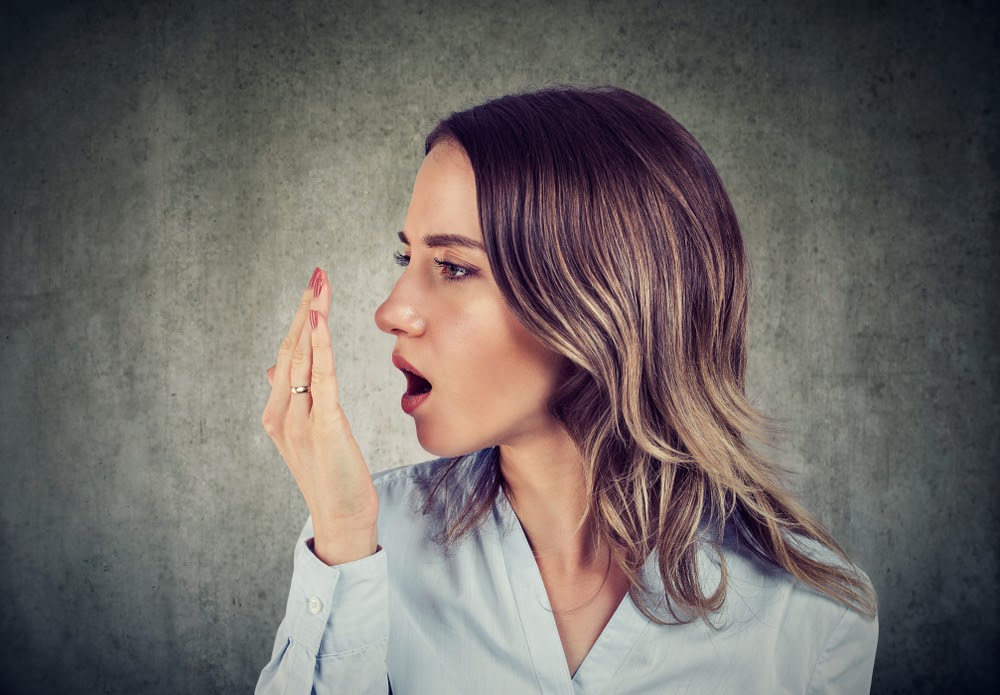Bad breath is something that people have had to deal with for generations. Whether it’s the food we eat that contributes to bad breath or it’s a sign of a more severe condition, bad breath odors can quickly become a significant problem for your daily interactions. Knowing what contributes to the smell and what can lead to bad breath can help you, and your dentist can formulate a treatment plan for your symptoms.
Changes in your breath can help you identify potential periodontal diseases that affect your teeth and gums, but you need to know where to look and when it’s time to act. With the help of improved oral hygiene and dental care from an experienced dental infection doctor, Hamilton Dental can help people counteract poor oral hygiene and make the best first impression possible.
What Is That Odor?
As people go about their daily routines, there are times where we do not notice things like bad breath, halitosis, or other mouth-related ailments that can signify a potential problem. With mask-wearing becoming more prevalent, the scent particles from your breath may have gotten trapped inside the mask, making it more likely that you notice the smell.
With the heightened awareness of bad breath, people are becoming more aware of their impact on the people around them. Either through the use of a mouthwash or going to your dentist’s office for a routine checkup, you can develop a plan of attack to get your breath smelling better in no time.
What Can I Do To Prevent Bad Breath?
Bad breath can negatively affect the first impression people have of you. To help give your first impression a boost, formulating a dental health strategy can help improve your breath. Some of the ways you can take your bad breath into your own include the following:
Regular Brushing Habits
Firstly, your oral care routine becomes one of the most impactful things you can do to combat bad breath. If you’re not already doing this (which you really should be), working a thorough tooth brushing into your nightly routine can help minimize the around of plaque and tartar buildup. The recommendation is to brush twice a day or after every meal.
Use Mouthwash After Brushing
You can also utilize a mouthwash to help freshen your breath and fight against bacteria buildup that can cause bad breath and dry mouth between professional cleanings. Regular mouthwash use can help combat the bacteria build and become a valuable tool in monitoring your overall tooth and gum health.
Bad breath represents an oral health condition that people have dealt with for years. However, it doesn’t have to mean that your first impressions and daily interactions with others have to suffer. In addition to utilizing the tips we have outlined, getting your teeth cleaned and examined by professionals can prove highly beneficial in the long run. Hamilton Dental is here to help you and your kids with our dental services!
If you would like to schedule your next appointment and get a handle on your mask mouth, contact our office today!







